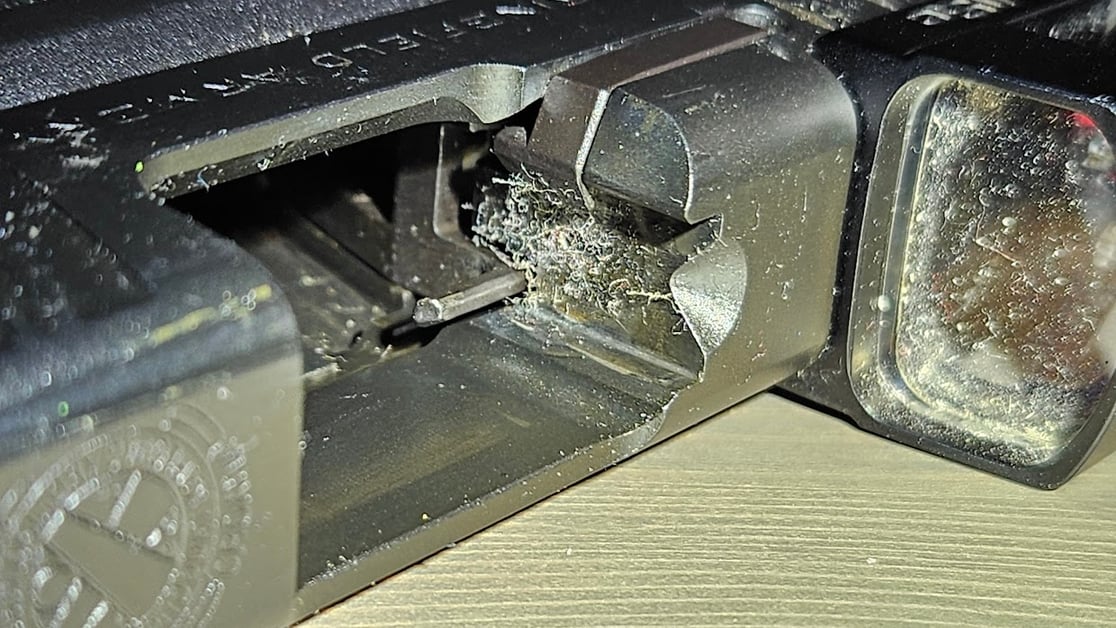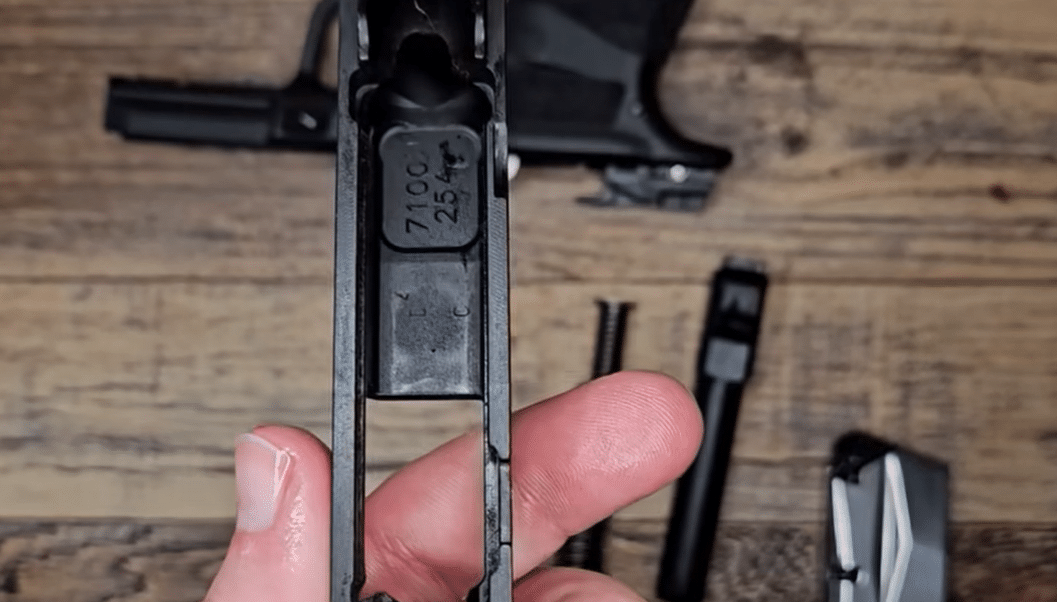Proper gun cleaning and gun maintenance of your concealed carry firearm is crucial for safety and performance. This comprehensive guide explains how often gun cleaning should occur, and provides essential tips for maintaining it.
When it comes to maintaining your concealed carry firearm, one of the most frequently asked questions is: How often should you clean it? The importance of this question cannot be overstated, as regular gun maintenance is critical for ensuring the safety, reliability, and longevity of your firearm. Whether you are an experienced firearm owner or new to concealed carry, understanding the correct cleaning schedule is essential.
Right off the bat, some might think, “If you’re practicing with it regularly, you should clean it after each range trip.” While this is indeed accurate, the reality is that not everyone can make it to the range consistently. Life gets busy, and it isn’t uncommon for individuals to miss out on regular practice sessions. This raises the question: If I’m not actively using your gun, how often should I clean my gun?
Table of Contents
Importance of Regular Gun Cleaning
For those who carry their firearm daily, natural buildup will occur over time. This buildup can include lint, dirt, and other debris encountered throughout your daily activities. Key areas where debris tends to accumulate include the muzzle, ejection port, and, if applicable, around the hammer. Essentially, any part of your firearm can collect unwanted materials. Regular cleaning ensures that these materials do not impede the firearm’s functionality.

Daily Carriers: Cleaning Schedule
If you carry your firearm regularly but miss out on range practice for extended periods, it is advisable to clean your firearm every few weeks. Accumulations of debris, such as lint, dirt, and other particles, can interfere with your firearm’s performance and safety. If you observe any buildup, it’s best to strip down the firearm for a thorough cleaning and re-lubrication. Regular inspections every few days can help you catch any abnormal buildup before it becomes an issue. For instance, a chunk of lint in your firing pin channel can be problematic, so staying vigilant is key.

Regular Shooters: Post-Range Cleaning
For those who frequently visit the range with their concealed carry firearm, cleaning it after each trip is a good habit. This not only ensures your firearm is in optimal condition but also helps you monitor for any wear and tear on its parts. Additionally, regular cleaning helps you become more proficient in the process, ensuring each part gets the attention it needs. Familiarity with your firearm through consistent maintenance is beneficial for any gun owner.
Deep Cleaning: Annual Gun Maintenance
Routine cleaning typically involves field-stripping your firearm, but a deep clean involves addressing internal parts not visible without further disassembly. These areas can also accumulate debris and should be cleaned at least once a year. If you’re unfamiliar with your firearm’s inner workings, consider seeking a gunsmith’s expertise for this annual deep clean. Professional cleaning can ensure that every component is properly maintained, extending the life of your firearm and maintaining its reliability.
Gun Cleaning Supplies and Tools
Proper cleaning requires the right tools and correct gun cleaning supplies. Here are some essential items you should have in your gun cleaning kit:

- Cleaning Rods and Brushes: Different sizes for various parts of the firearm.
- Solvents and Lubricants: To remove debris and ensure smooth operation.
- Patches and Cloths: For wiping down components and applying solvents.
- Bore Snake: A handy tool for cleaning the barrel.
- Gunsmith Tools: For disassembling and reassembling your firearm.
Investing in high-quality gun cleaning supplies will make the process more efficient and effective. Ensure you follow the manufacturer’s guidelines for your specific firearm model.
Safety First: Handling Your Firearm
Always prioritize safety when handling and cleaning your firearm. Ensure the firearm is unloaded before beginning any maintenance work. Check the chamber and magazine to confirm that there is no ammunition present. Handling your firearm responsibly prevents accidents and ensures a safe cleaning process.
Benefits of Regular Cleaning
Regular cleaning offers numerous benefits beyond maintaining functionality. It helps you:
- Identify Wear and Tear: Spotting worn or damaged parts early can prevent malfunctions.
- Enhance Performance: A clean firearm operates more smoothly and reliably.
- Extend Lifespan: Proper gun maintenance prolongs the life of your firearm.
- Ensure Safety: Reduces the risk of accidents caused by debris or buildup.
Expert Tips for Effective Gun Cleaning
- Disassemble Properly: Follow your firearm’s manual to correctly field-strip the firearm.
- Clean Thoroughly: Pay attention to all parts, including the barrel, slide, and frame.
- Use Appropriate Solvents: Avoid using harsh chemicals that can damage your firearm.
- Lubricate Correctly: Apply lubrication sparingly to avoid attracting debris.
- Inspect Components: Look for signs of wear, damage, or rust and address them promptly.
What About Carry Ammo?
While maintaining your firearm, don’t forget about your ammunition. Regularly inspect your carry ammo for signs of wear, corrosion, or damage. Don’t forget about bullet setback, either! Replace old or compromised rounds to ensure reliability. Using high-quality, reliable ammunition is just as important as maintaining your firearm.

Training and Practice
Although gun cleaning is crucial, regular training and practice with your firearm are equally important. Familiarity with your firearm’s handling and operation can improve your confidence and proficiency. Schedule regular range sessions to stay sharp and ensure you are comfortable with your firearm’s functionality.
Responsible Gun Ownership
Maintaining a clean firearm is a fundamental aspect of responsible gun ownership. Proper gun maintenance ensures that your firearm is always ready for use and reduces the risk of malfunctions. Educate yourself on best practices and stay informed about new maintenance techniques and tools. Joining firearm safety courses or communities can provide valuable insights and support.
Conclusion
In conclusion, maintaining a clean firearm is vital for its performance and safety. Whether you carry your firearm daily or visit the range regularly, understanding the appropriate cleaning schedule and techniques is essential. Regular gun cleaning and gun maintenance protects your investment, ensures your firearm is reliable, and promotes safe handling. Clean your concealed carry firearm as if your life depended on it because, in a critical moment, it just might.
Safety Tip: Regularly inspect your firearm for debris and clean it as needed to ensure reliable performance and safety.














![[CCW IN ACTION] Pizza Delivery Driver Turns Tables On Teen Robber](https://imagedelivery.net/sbm_lYeJbALkepJgtmRD5w/concealednation.org/2015/09/marked-unit-with-crime-scene-tape-in-background.jpg/w=728,h=381)